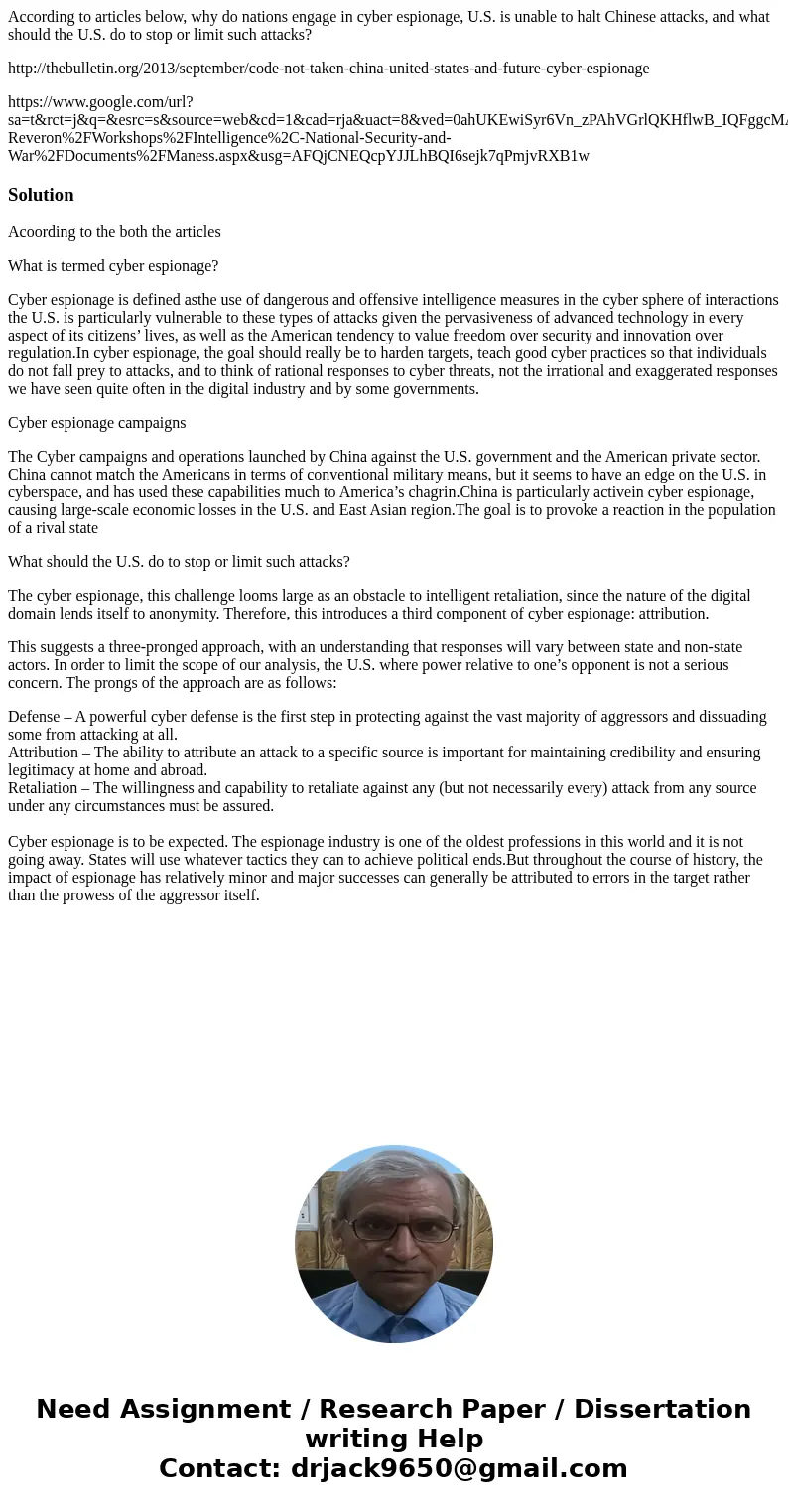According to articles below why do nations engage in cyber e
According to articles below, why do nations engage in cyber espionage, U.S. is unable to halt Chinese attacks, and what should the U.S. do to stop or limit such attacks?
http://thebulletin.org/2013/september/code-not-taken-china-united-states-and-future-cyber-espionage
https://www.google.com/url?sa=t&rct=j&q=&esrc=s&source=web&cd=1&cad=rja&uact=8&ved=0ahUKEwiSyr6Vn_zPAhVGrlQKHflwB_IQFggcMAA&url=https%3A%2F%2Fwww.usnwc.edu%2FAcademics%2FFaculty%2FDerek-Reveron%2FWorkshops%2FIntelligence%2C-National-Security-and-War%2FDocuments%2FManess.aspx&usg=AFQjCNEQcpYJJLhBQI6sejk7qPmjvRXB1w
Solution
Acoording to the both the articles
What is termed cyber espionage?
Cyber espionage is defined asthe use of dangerous and offensive intelligence measures in the cyber sphere of interactions the U.S. is particularly vulnerable to these types of attacks given the pervasiveness of advanced technology in every aspect of its citizens’ lives, as well as the American tendency to value freedom over security and innovation over regulation.In cyber espionage, the goal should really be to harden targets, teach good cyber practices so that individuals do not fall prey to attacks, and to think of rational responses to cyber threats, not the irrational and exaggerated responses we have seen quite often in the digital industry and by some governments.
Cyber espionage campaigns
The Cyber campaigns and operations launched by China against the U.S. government and the American private sector. China cannot match the Americans in terms of conventional military means, but it seems to have an edge on the U.S. in cyberspace, and has used these capabilities much to America’s chagrin.China is particularly activein cyber espionage, causing large-scale economic losses in the U.S. and East Asian region.The goal is to provoke a reaction in the population of a rival state
What should the U.S. do to stop or limit such attacks?
The cyber espionage, this challenge looms large as an obstacle to intelligent retaliation, since the nature of the digital domain lends itself to anonymity. Therefore, this introduces a third component of cyber espionage: attribution.
This suggests a three-pronged approach, with an understanding that responses will vary between state and non-state actors. In order to limit the scope of our analysis, the U.S. where power relative to one’s opponent is not a serious concern. The prongs of the approach are as follows:
Defense – A powerful cyber defense is the first step in protecting against the vast majority of aggressors and dissuading some from attacking at all.
Attribution – The ability to attribute an attack to a specific source is important for maintaining credibility and ensuring legitimacy at home and abroad.
Retaliation – The willingness and capability to retaliate against any (but not necessarily every) attack from any source under any circumstances must be assured.
Cyber espionage is to be expected. The espionage industry is one of the oldest professions in this world and it is not going away. States will use whatever tactics they can to achieve political ends.But throughout the course of history, the impact of espionage has relatively minor and major successes can generally be attributed to errors in the target rather than the prowess of the aggressor itself.

 Homework Sourse
Homework Sourse